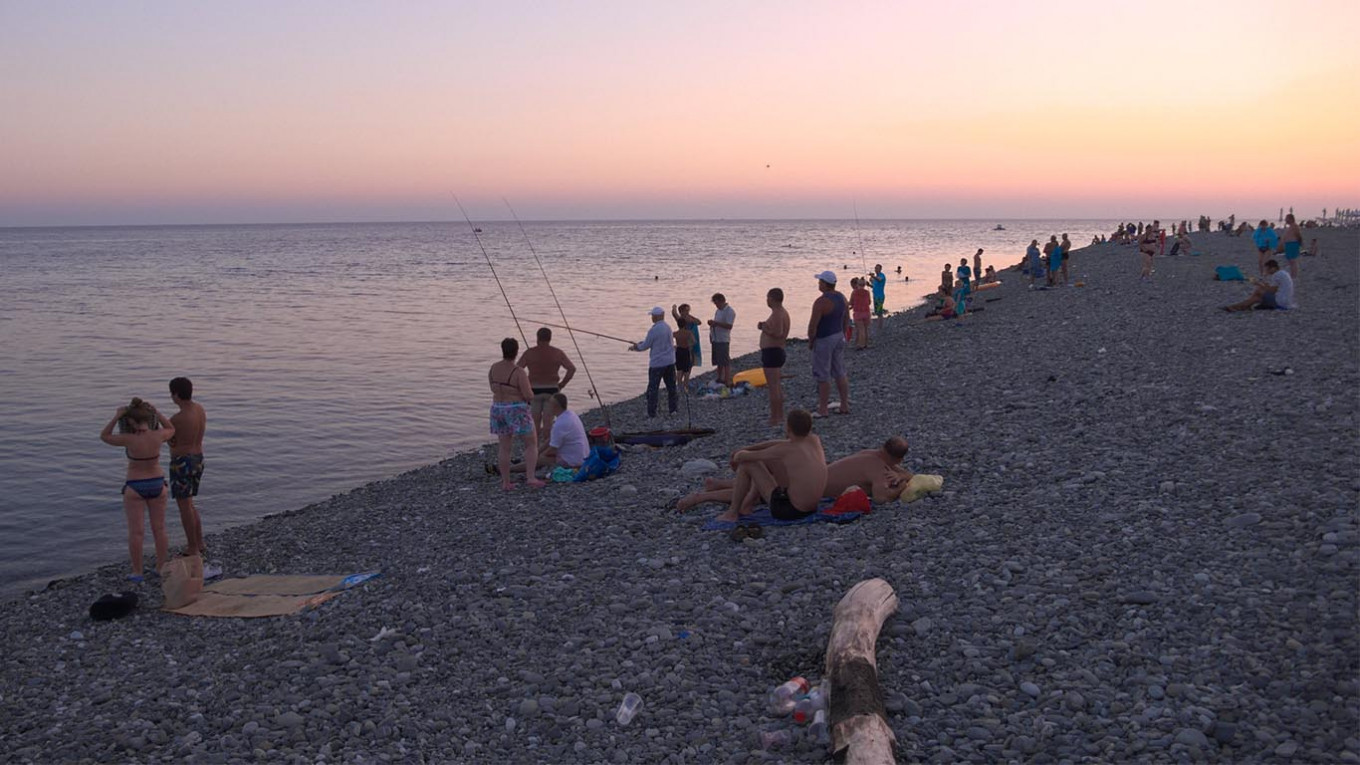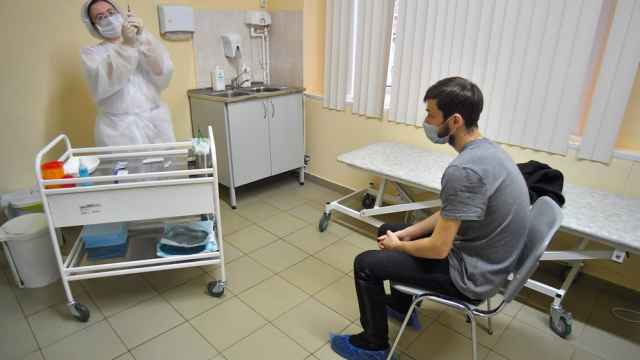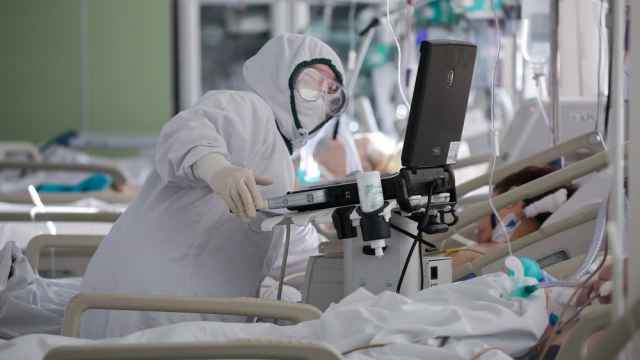Authorities in Russia’s Black Sea resort of Sochi have imposed strict measures to keep tourists away from the city as locals expressed concern that visitors could bring an outbreak of the coronavirus with them.
President Vladimir Putin declared a nationwide paid holiday from March 28 to April 5 in a move to tackle the coronavirus crisis but stopped short of stricter measures that would require Russians to stay home. According to data from flightradar24.com and media reports, Muscovites started flocking to Sochi starting Saturday despite its mayor urging them to stay away.
Regional authorities said they had suspended the accommodation of new guests in all hotels and resorts starting March 28 and closed all entertainment, sporting, cultural and leisure activities. A popular ski resort at Krasnaya Polyana, in the Caucasus mountains near Sochi, closed completely.
Some tour agencies misinterpreted Krasnodar region governor Veniamin Kondratyev’s decree and started evicting tourists from hotels ahead of their departure date, according to the independent Dozhd television channel. The city administration later said that tourists already in the region can stay until their check-out date.
By Tuesday, only 12,000 tourists remained in Sochi under “severe restrictions” out of the 52,000 vacationers who had been there at the end of last week.
Major hotel chains like Azimut, Radisson and Hyatt told The Moscow Times that booking new stays at their Sochi locations is suspended until at least April 5-6 due to the regional government’s decree, adding that they expect the measures to be extended.
Smaller hotels and guest houses have also followed the authorities' orders and closed bookings until at least mid-April.
An employee from a small resort – rated by Booking.com as a two-star hotel – told The Moscow Times that the local tourism industry expects the regional tourism ban to be extended until at least early June. The employee warned against arriving in Sochi during the “paid holiday week,” suggesting that the authorities may run arbitrary ID checks and that he had heard “of a possibility that Sochi would soon be put under total lockdown.”
“The city [Sochi] is already closed. You cannot come here by train or by plane. The ground checkpoint is also closed,” the staffer said.
Despite the authorities’ increasingly strict measures, travelers can still find a way to spend their “non-working week” at the popular Russian seaside resort.
As of Tuesday, Russian air carriers including Pobeda and Utair are still running direct flights between St. Petersburg, Moscow and Sochi.
Private property owners and booking agents who wished to remain anonymous told The Moscow Times that they have plenty of “options” for vacationers even amid the coronavirus crisis.
According to online classified ads, one can book a stay in a “comfortable studio apartment” in the city during the holiday week and beyond. The property agents warned that tourists would have to “think about food and drinks” on their own because all nearby bars and restaurants are closed, but that grocery stores near the rented apartments are still open.
Russia has confirmed 2,337 cases of the coronavirus and 17 infection-related deaths. Moscow, with 1,613 of these cases, has become the epicenter of the outbreak within Russia. The city enacted an indefinite citywide quarantine starting March 30, requiring Muscovites to stay inside except for emergency reasons.
A Message from The Moscow Times:
Dear readers,
We are facing unprecedented challenges. Russia's Prosecutor General's Office has designated The Moscow Times as an "undesirable" organization, criminalizing our work and putting our staff at risk of prosecution. This follows our earlier unjust labeling as a "foreign agent."
These actions are direct attempts to silence independent journalism in Russia. The authorities claim our work "discredits the decisions of the Russian leadership." We see things differently: we strive to provide accurate, unbiased reporting on Russia.
We, the journalists of The Moscow Times, refuse to be silenced. But to continue our work, we need your help.
Your support, no matter how small, makes a world of difference. If you can, please support us monthly starting from just $2. It's quick to set up, and every contribution makes a significant impact.
By supporting The Moscow Times, you're defending open, independent journalism in the face of repression. Thank you for standing with us.
Remind me later.






